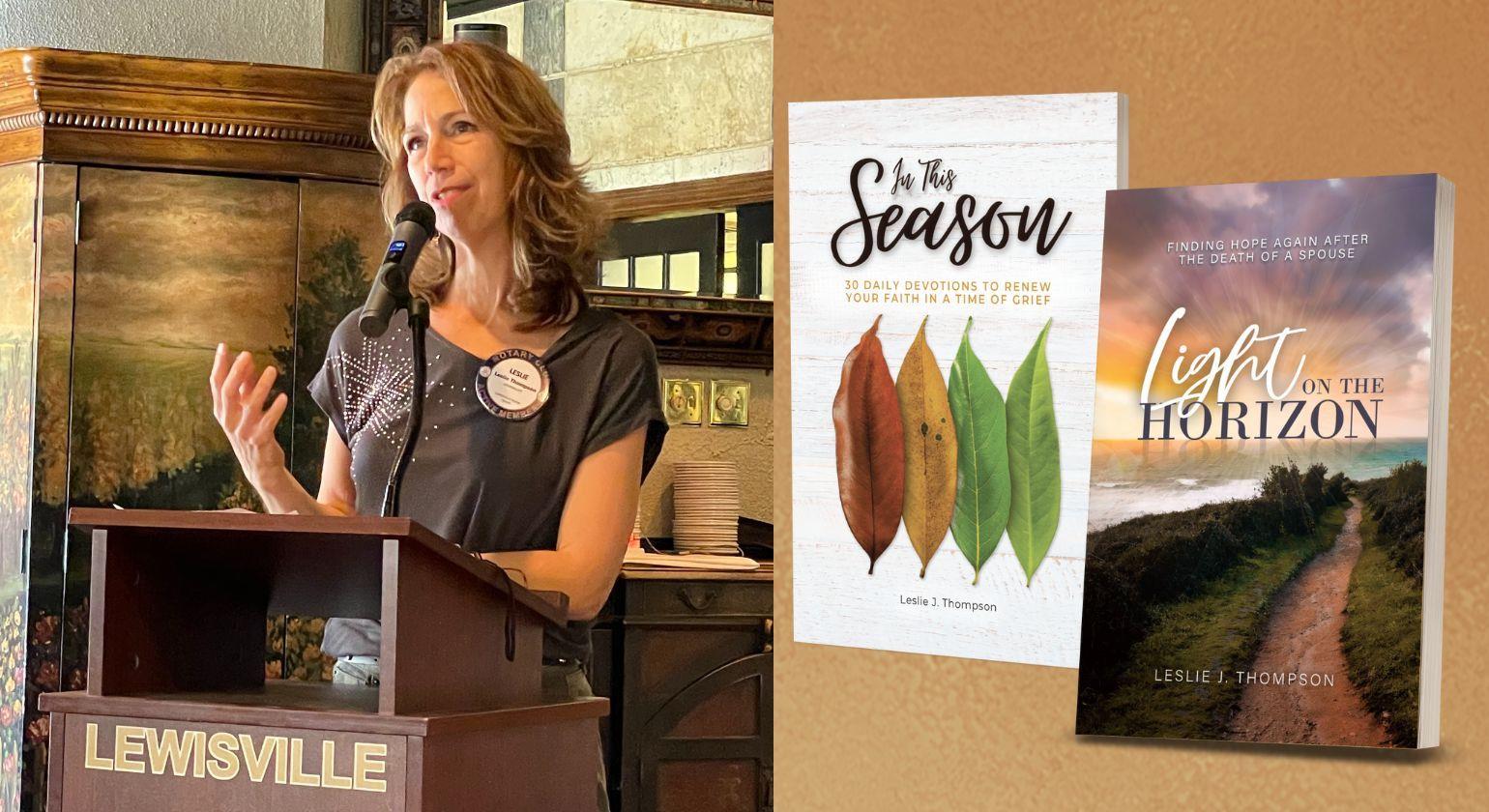LNR Communications chair and resident author Leslie Thompson last week encouraged her fellow Rotarians to share their insights and expertise with the world by writing a book.
"There is exactly one of you," Thompson said, adding, "One person who has gleaned wisdom from the path you have walked, from the people you have met, and from what you have learned in your career and personal life." An effective way to leave a legacy that can impact generations is to capture that wisdom on the printed page.
Thompson encouraged audience members to consider three categories of non-fiction books: life story (i.e., memoir), life lessons, and practical knowledge. She said people shouldn't sell themselves short, if they think their life story--in part or in whole--is not worth telling. "If you grew up on a ranch in West Texas, reading about what your childhood was like day to day might be really fascinating for someone who has only lived in big cities or grew up in a college town on the East Coast, like me," she said. Similarly, life lessons learned at the hem of their grandmother's apron in the family kitchen may contain universal truths that can benefit readers from various backgrounds.
A book focused on practical wisdom or knowledge often is the easiest place to start when considering a writing project, since the content can be more pragmatic. The focus is on insights that can help others grow personally or professionally, whether the topic is strategies for parenting a special needs child, tips for making marriage work, or a step-by-step guide to flipping houses.
Overall, the process of writing a book is not as onerous as it may seem, Thompson noted. "If you write only one page a day--which is really just three or four paragraphs--in less than four months, you will have 100 pages" or about 30,000 words, she said. As with any project, the key to seeing it through is discipline. "Life can get in the way, but don't take your wisdom to the grave," Thompson said.
